
|
The Non Smokers' Movement of Australia | |||
|
Protecting the rights of the Non-smoking majority from
tobacco smoke and from the tobacco industry's propaganda. |
||||
| | | Home Page | About | Publications | Newsletters | Campaigns | <Search | | ||||
Issue 56, November 2007
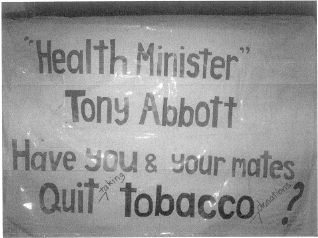

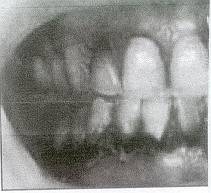


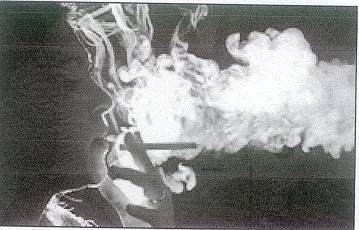
Contents:
NSMA Founder Honoured Thirty years fighting for our basic rights to clean, smokefree air NSMA Founder Brian McBride and his wife, Angela, with the trophy presented to Brian in 2005, by AustNZ Thoracic Surgeons for his longtime voluntary work in Tobacco Control. 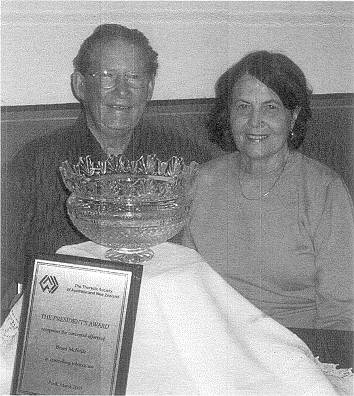
Brian McBride and Angela McBride 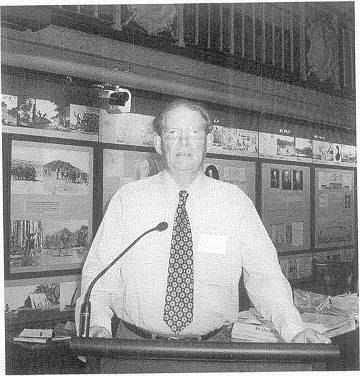
Brian addressing Select Committee, NSW Parlt. May2006. To quote Brian: "Today's mighty oak is yesterday's nut who held his ground" Editorial - November 2007 On reading about a recent study from the USA (Tuft College of Vet. Medicine, Sept2007) which shows that secondhand smoke can affect pets, I recall the time when we were living and working in England's south from 1999-2001. I joined Action on Smoking and Health (UK) as a volunteer, one of a team of two in the southeast.. I spent many hours gasping for breath in smoky pubs and restaurants, desperately trying to convince proprietors that they would attract more customers and would live longer themselves if they went smokefree. World No-Tobacco Day gave me an opportunity to highlight an aspect of Britons' lives which they would surely consider - "quit smoking for your pets' sake" I doctored the colourful posters with messages from their beloved dogs, cats and canaries and visited every veterinarian in the area. They were very willing to display the messages in their waiting rooms, knowing instinctively that secondhand smoke does harm domestic pets, especially those confined indoors. I feel certain that, given widespread publicity of this recent research, many pet-lovers would at least not smoke indoors near their pets. I also have no doubt that British sitcom's Mrs Slocombe would "give it up for her pussy!" On another note - let's take up the challenge for Australia to be predominantly smokefree, along with our New Zealand neighbours, by 2017. There's a potential new federal Government looming - we call for effective spending to encourage all tiers of government to protect everyone's basic rights to clean, smokefree air., spending to prevent take-up of smoking, and spending to assist smokers to quit.. Call on all Australian governments to protect our basic rights, especially those of children. Current Federal spending rests at around $8 million per year. Of course, the Liberal Party continues to accept donations from Big Tobacco. However, with spending of just 2% of the national excise (revenue) from tobacco i.e. at least $120million per year, a comprehensive strategy could include:
According to QuitVic, "the most effective tobacco control programs adopt a multifaceted approach, combining strategies that range from policy such as banning smoking in public places, to mass media campaigns that educate about the health effects of smoking." Margaret Hogge, President. Report from Owen Graham, NSMA Vice-President. Oceania Tobacco Control Conference Auckland 4-7 September 2007 I was headed to the US on business so I left a few days early for my first ever visit to New Zealand to represent the Non Smokers' Movement of Australia at the Oceania Tobacco Control Conference in Auckland. My program notes point to some interesting reading about the sorts of research and action in rolling back the tobacco industry in our corner of the world. When I mention research, I'm not talking about some far off future cure for cancer, or counting the number of teenagers walking out of supermarkets with menthol fifties. For example: Kathryn Barnsley, University of Tasmania studied politicians and how they made decisions on policy. "The experiences of one angry constituent relayed passionately at a county fair may be valued as equally importantly as thirty scientific studies arguing the opposite view". Of most value to us as a lobby group is the advice from Richard Daynard on using international treaty obligations to prompt political action. For example the Framework Convention on Tobacco Control (FCTC) requires governments to make demonstrable progress on tobacco control measures each year. If your government hasn't made any new restrictions on tobacco use, sales or distribution for over twelve months then you should write to your local representative mentioning Australia's international treaty obligations. The convention also requires a structure for sustainable funding for tobacco control, something sadly missing in Australia. In India, for example, the Supreme Court ordered the legislature to enact legislation restricting second hand tobacco smoke because India had signed the treaty. This also underlines an important point in the absence of local enabling legislation, the treaty obligations are, by default, law. The International Convention on the Rights of the Child contains article 6 demanding action to ensure maximum possible survival of the child and article 12 for highest attainable standard of health, both worth quoting when arguing for a ban on smoking in private vehicles conveying persons under eighteen years of age. The Human Rights Treaty also has article 13 prohibiting transnational corporations from production, distribution, marketing or advertising harmful or potentially harmful products for use by consumers. Perhaps that treaty could be the stake-in-the-heart that turns bloodsuckers into dust? The Pacific Islands Countries trade Agreement (PICTA) is a free trade agreement being negotiated by all the nations in the South Pacific (except Australia & New Zealand). The proposal will end duties between Pacific nations but it is proposed that tobacco and alcohol be exempt so nations can impose local tariffs to control the social impact of these goods. You should write to Alexander Downer (or his successor) and demand Australia not undermine our Pacific Island neighbours efforts. If Australia joins the PICTA, Australia should also exclude tobacco from free trade. Write to your favourite political party to get their party political position on our international obligations towards our Pacific neighbours and particularly tobacco control. Richard Daynard also mentioned the importance of litigation in forwarding tobacco control. States that have successfully litigated for recovery of health costs include Israel, Saudi, Nigeria and six provinces of Canada. Why not Australia? Australian litigation was mentioned as historically significant but each day these victories become more history and less significant. In New York and Massachusetts litigation forced the tobacco companies to sell self extinguishing cigarettes. They continue to sell long-burn cigarettes everywhere else. For more information look at the website of the Tobacco Liability Project: www.tplp.org. Other resources include the Legacy Tobacco Documents Library that includes volumes of incriminating tobacco company documents (40 million pages would you believe): legacy.library.ucsf.edu and Tobacco Documents On-Line at www.tobaccodocuments.org. Unfortunately, research by Judith P. McCool shows that the public sees tobacco companies as legitimate businesses and their victims deserving of their self harm. New Zealanders were reluctant to support litigation against tobacco firms when plaintiffs are seen as deserving of their illness, despite supportive or neutral media coverage. This research underlines the importance of de-normalising smoking in the community. George W. Thompson research argued convincingly for the immediate closure of several tax loopholes in roll-your-own tobacco and airport duty free sales. It is estimated roll-your-own tobacco denies the New Zealand Government NZ$190 million each year in tax revenue. Australia has a similar loophole that is costing far more in lost revenue. The Canadians are now the world leaders in tobacco control. Garfield Mahood was recently awarded the Order of Canada for his work in tobacco control. British Colombia has a Tobacco Fee Act that bases the annual licence fee on market share. The fee is estimated on information provided by tobacco companies and other sources but includes estimates of smuggling. The tobacco companies do not balk at paying, indicating their profits far outweigh the cost of the licence. Quebec and Nova Scotia have banned the sale of tobacco in bars and next year six provinces will enact legislation banning smoking at entrances, exits and patios. Canada is considering the ban on fruit flavoured cigarettes to menthol flavoured cigarettes. Bans on point of sale displays have reduced hold-ups and robberies (despite tobacco lobbyists arguing it would increase crime). Of most interest to me was the "Consumer Licence to Purchase" proposal, not unlike the "Individual Smoking Licence" proposal put forward by Brian McBride. The proposed Canadian licence would cost $100 per year and could be surrendered for a $25 refund at any time. Canada had a $5 annual licence fee for individuals to purchase alcohol in the 1960s so the precedent and legislative framework exists. Australia once led the world in tobacco control. We now lag behind third world nations like Thailand which has banned retail displays, tobacco producing states like Virginia that is now suing tobacco companies to recoup health costs and tiny states like Bhutan which has outlawed tobacco completely in pursuit of "gross national happiness". Nearby island states such as Tuvalu and Palau may go completely smoke-free before 2010, New Zealand and Fiji by 2012. Indeed a "Smoke-Free Pacific" by 2014 may see Australia looking very twentieth century. Owen Graham Vice President, Non-Smokers' Movement of Australia Ph: 0409631789 Australia and the International Framework Convention on Tobacco Control (FCTC) Information from Dept. of Health and Ageing: "Australia played a leading role in the negotiations and is a strong supporter of the Convention" |"The objective of the FCTC is to protect present and future generations from the health, social, environmental and economic consequences of tobacco consumption and exposure to tobacco smoke.". |"The Australian Government Department of Health and Ageing is well placed to provide expertise and support to these countries with the aim of boosting global capacity building and is continuing to focus on strategies." "Health Minister" Tony Abbott - dare we say that, while your political party continues to accept donations from Big Tobacco, these statements are meaningless. "Don't smoke if you're pregnant" message to prevent cot deaths A study from Bristol University in UK reported in October 2007 that there is a link between cot deaths /SIDS (Sudden Infant Death Syndrome) and mothers who smoke. Researchers looked at the results of 21 studies regarding smoking and SIDS, finding that 90% of deaths were those of babies whose mothers smoked during pregnancy. Numbers of cot deaths have been considerably reduced with successful campaigns advocating laying babies on their backs to sleep. Researchers say that mothers should be advised to stop smoking altogether, and not, as previously told, to reduce smoking. NSMA calls on all Australian Governments to ensure that this information is promulgated to all potential parents and to the medical profession, with every possible assistance provided for complete cessation for parents, not only to protect the unborn child now, but also to ensure a healthy future for the family. China - 350 million smokers - one third of the world's smokers According to Anne Jones, CEO of ASH (Action on Smoking and Health) Australia, China is now at the beginning of a comprehensive effort of Tobacco Control. Ms. Jones is directly involved in assisting World Health Organisation preparing Beijing for a Smokefree Olympics in August 2008. China announced in August this year that it will ban all tobacco advertising by 2011, under the Framework Convention on Tobacco Control The Chinese Government is, however, a tobacco producer, and it will take a major shift in policy and education to change the culture of promotion and acceptance of smoking today, to bring it to a point where smoking is de-normalised. For the sake of all children in China, let's hope that China very quickly sees the balance of the economic equation, that the cost of smoking far outweighs the revenue, and that "every cigarette causes you damage". By Contrast: An article in the New York Times "A New Arena in the Fight over Smoking: The Home" shows that a growing movement to restrict smoking in apartments and condominiums is having some success. Jim Bergman, founder of the Smoke-Free Environments Law Project, which is based in Michigan, says thousands of small apartment complexes across the country are taking steps to restrict smoking inside multiunit residential buildings. Health advocacy groups regard housing as one of the smokefree movement's final frontiers. Cities in California which have led the movement - Belmont, Temecula and Calabasas. Some smoking advocates argue that smoke can be contained inside units, but research conducted by biophysicist James Repace found that the shared air ranges between 10% and 50%, worst at upper floors. . Smoking Bans in Scotland have significantly saved Lives. Scotland's comprehensive workplace smoking bans show, in a report this September, there were 17% fewer hospital admissions for heart attacks, since March 2006. The usual drop was 3%. Also, in a slap in the face to our very own tobacco-friendly John Thorpe, President of Australian Hotels Association(NSW) , "there was no evidence that smoking had shifted from public places into homes, and the Scottish researchers found high public support for the ban even among smokers." Thorpe has bleated that parents would smoke at home, indoors, with their children if smoking were banned indoors. Maureen Moore, CEO of ASH Scotland said that the ban "was a courageous move taken by the Scottish Parliament" Aye, Aye. After Scotland banned smoking in enclosed public spaces, Wales and Northern Ireland did the same in April , as did England in July. Thanks, Local Government Councillors, for leading the way in protecting every body's rights to clean, smoke-free air. Clean Water, Clean Air - every body's basic rights. NSMA was represented at Coff's Harbour outside the NSW Local Government Conference, held in October. Margaret Hogge (Pres.) greeted Local Government delegates at the entrance to Coff's Harbour Ex-Servicemen's Club, thanked them for their wonderful efforts to date in leading Australia's fight for Clean Air Rights, and urged them to support Manly Council's motion aimed at further extending smokefree areas. An amended motion, supported by Manly Councillor Barbara Aird was passed. Clubs NSW CEO David Costello had desperately written to all NSW Mayors, suggesting such furphies as "Clubs NSW have supported the indoor smoking bans, believing that the health of non-smokers should be protected when inside a club." 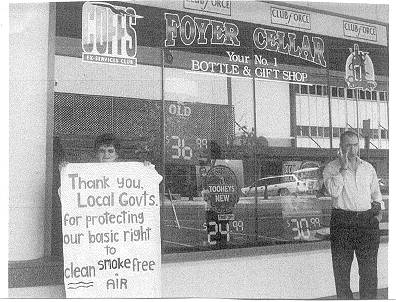
And another from Clubs NSW "while ever smoking remains a legal activity, they have an obligation to their members and guests to provide a comfortable area where smoking can lawfully occur while still protecting the health of non-smokers." Friendly security staff from the Club enquired if she was with the Local Government Conference and, when told that she wasn't, asked her to "move on" as she was causing a "nuisance". She pointed out that, as a lone person with a smiling face and a hand-held banner and Thank-you messages, she could hardly be regarded as a nuisance, but they insisted, so she eventually moved away after standing at her post for almost the entire day. The security staff are much nicer up in the "bush" than down in the "big smoke". (Pictured: M. Hogge and "friend") Aboriginal Health Worker Resource Kit. Smoking prevalence among indigenous Australians is more than double the rate of the general population. The attached resource Kit is available on request. 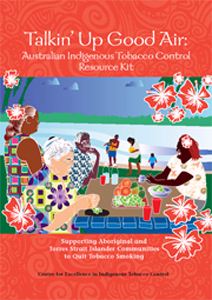
We need to work together to dramatically increase life expectancy and to reduce children's exposure to secondhand smoke. This tobacco control resource kit for Indigenous Australian communities aims: * To Assist health professionals, along with community and education workers, to become community leaders in the area of tobacco control. * To raise the priority of tobacco control in Indigenous communities. * To build community ownership in tobacco control by supporting community initiated and controlled action. News stories which depict Smoking - Do they breach Tobacco Advertising Laws? Show Graphic Warnings, not Smiling Smokers Tobacco Advertising Prohibition Act (TAPA)1992 - , a tobacco advertisement is basically anything that gives publicity to or promotes: * Smoking * The purchase or use of tobacco products * Etc. We are constantly exposed to news stories from around the world about tobacco and smoking, many stories being about strong legislation for tobacco control. Unfortunately, however, the stories are usually accompanied by positive smoking images in print and on television, often depicting smoking as a normal, pleasurable pursuit, a part of everyday life. Such images are actually advertising tobacco and are thus breaches of the TAPA. The stories should only be accompanied by approved Graphic Warnings, to illustrate the news items appropriately. Sydney University Prof. of Public Health. Simon Chapman warns that the Federal Government must strongly regulate against "glamorising" smoking on "YouTube". (Sept2007) Some of the material could have been provided by amateurs, but apparently some are fairly obviously aimed by Big Tobacco at encouraging young people to smoke. Further inroads curbing smoking in cars with children Following our previous Clean Air Update, a further two states are regulating to protect children from secondhand smoke in vehicles. - congratulations to all involved, in Tasmania and Queensland. California USA has also agreed to regulate to make cars carrying children smokefree. |

|
The Non-Smokers' Movement of Australia Inc, Box K860, Haymarket NSW 1240. | |||
| This page was last updated on Thursday 6th December, 2007. | ||||
| Home Page | Publications | Updates List | Top of Page | ||||